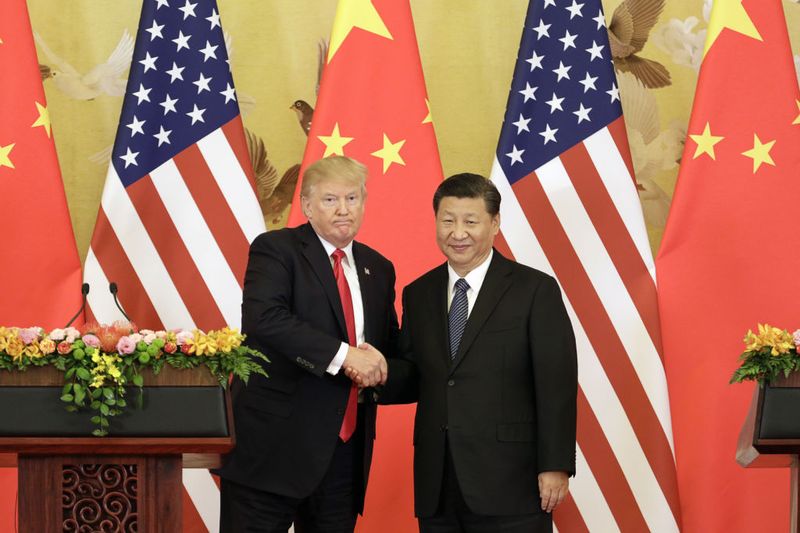The leaders of the world’s top economies gathered in Argentina on Friday for talks overshadowed by a U.S.-China trade war that has roiled global markets.
Observers said the summit was bracing for the kind of geopolitical drama U.S. President Donald Trump often brings to the international stage.
The two-day annual gathering will be a major test for the Group of 20 industrialised nations.
The leaders first met in 2008 to help rescue the global economy from the worst financial crisis in seven decades.
With a rise in nationalist sentiment in many countries, the group faces questions over its ability to deal with the latest round of crises.
Overhanging the summit in Buenos Aires, the Argentine capital, is a trade dispute between the U.S. and China, the world’s two largest economies.
They have imposed tariffs on hundreds of billions of dollars of each other’s imports.
All eyes will be on a planned dinner between Trump and Chinese President Xi Jinping on Saturday to see whether they can make progress toward resolving differences threatening the global economy.
Beijing hopes to persuade Trump to abandon plans to hike tariffs on $200 billion of Chinese goods to 25 per cent in January, from 10 per cent at present.
“We hope the U.S. can show sincerity and meet China half way, to promote a proposal that both countries can accept,” Foreign Ministry spokesman Geng Shuang told a briefing in Beijing.
Speaking in Buenos Aires, U.S. Trade Representative Robert Lighthizer said he would be surprised if the dinner was not a success, but it would depend entirely on the two presidents.
On the eve of the summit, G20 member nations were still trying to reach agreement on major issues including trade, migration and climate change that in past years have been worked out well in advance.
Trump’s skepticism that global warming is caused by human activity has raised questions about whether the countries will be able to reach enough consensus on climate change to include it in the summit’s final communique.
Earlier this month, officials from countries attending a major Asia-Pacific summit failed to issue a joint statement for the first time after the U.S. delegation clashed with China over trade and security.
However, delegates to the talks in Buenos Aires said good progress had been made on economic sections of the statement overnight. Argentina’s presidency voiced optimism consensus would be reached on a draft.
“As this is a difficult moment for international cooperation, I would like to appeal to the leaders to use this summit to seriously discuss real issues such as trade wars, the tragic situation in Syria and Yemen and the Russian aggression in Ukraine,” European Council President Donald Tusk told a news conference in Buenos Aires.
Highlighting the deep rifts within the G20, Tusk said the European Union would extend its economic sanctions on Moscow next month, after Russian ships fired on Ukrainian ones in the Sea of Azov last week, detaining the boats and sailors.
Trump cited Russia’s seizure of the ships as the reason he canceled a planned bilateral meeting with Russian President Vladimir Putin.
They had been expected to discuss the U.S. leader’s threat to withdraw from the Cold War-era Intermediate-Range Nuclear Forces treaty.
Canadian Diplomat Diagnosed with Mysterious Cuban Brain Disease
However, Moscow said U.S. domestic politics may have been the real reason behind the cancellation.
Michael Cohen, Trump’s former longtime personal lawyer, pleaded guilty on Thursday to lying to Congress about a proposed Trump Organization skyscraper in Moscow.
The presence of Crown Prince Mohammed bin Salman at the summit also raised an awkward dilemma for leaders.
Saudi Arabia’s de facto ruler arrived under swirling controversy over the murder of Saudi journalist Jamal Khashoggi in the Saudi consulate in Istanbul on Oct. 2.
British Prime Minister Theresa May said she would be robust when she talks to Prince Mohammed, urging him to hold a full and credible investigation into Khashoggi’s killing and hold those responsible to account.

